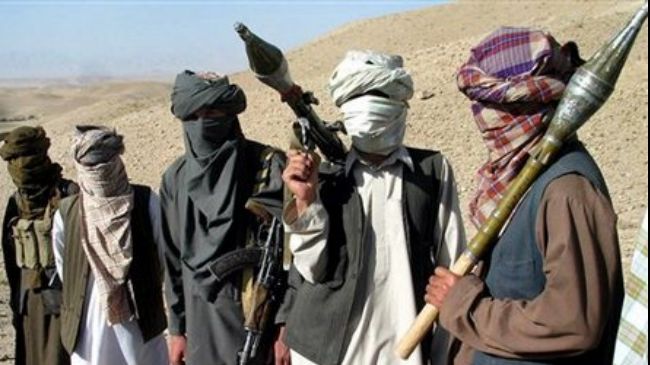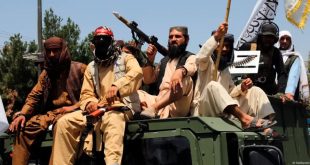By Ajmal Shams-Ever since President Ashraf Ghani has assumed office about two years ago, Afghan-Pak relations have witnessed many ups and downs. President Ghani in an exclusive interview with Pakistan’s famous Geo Television about a month ago tried to articulate his country’s case in the strongest possible terms. On this occasion, President Ghani’s message to the government of Pakistan was loud and clear: enough is enough and double standards are not acceptable.
Pakistan has consistently maintained claims of its sacrifices in the fight against terrorism in terms of human losses and financial resources. Afghanistan does recognize the loss of lives on the Pakistani side as well the sacrifices of its international partners in the fight against terrorism. Yet, its argument is why Pakistan continues to differentiate between the ‘good’ and the ‘bad’ Taliban. When Pakistan talks about its fight against the Taliban, it fails to clarify which category of the Taliban it is referring to; ‘the good’ ones or ‘the bad’ ones. It is no longer a hidden truth that Pakistan does fight the insurgents that targets it, which it terms as the ‘bad Taliban’. On the other hand, it provides sanctuaries to those conducting militant operations in Afghanistan calling them as the ‘good Taliban’. As President Ghani has repeatedly emphasized, unless all terrorist groups are dealt with in a similar manner, the sincerity of Pakistan’s so-called fight against terrorism will be looked at with mistrust.
Afghanistan believes Pakistan turns a blind eye to the fact that it has benefited financially from more- than-a-decade’s presence of international security forces in Afghanistan in the form of Coalition Support Fund. Additionally, Pakistan was the top beneficiary of billions of dollars of trade with Afghanistan as the former was a major market for supplies to facilitate the operations of international community. Despite all the commercial benefits, Pakistan has consistently viewed international engagement in Afghanistan as detrimental to its interests because of its own perception.
Pakistan accuses Afghanistan of supporting theBaloch insurgency, which is essentially Pakistan’s internal issue. It is very unlikely that Afghanistan would have had anything to do with it. And neither will Afghanistan profit from any such revolt. Afghanistan’s stance in this regard is corroborated by the fact that the country has its own patriotic Baloch population that has a proven historic record of loyalty to their country. It is probable that a potential Baloch uprising in Pakistan will have a destabilizing effect on Afghanistan.
Pakistan claims there have been renewed efforts from Afghanistan to renew the Durand Line and Pashtunistan issues. Yet, there is hardly any evidence that Afghanistan might have endeavored to revitalize these long-standing disputes. Furthermore, Afghan government does not consider its historic stance on these as obstacle in good neighborly relationship with its southern neighbor.
Pakistan is unhappy about Afghanistan’s cordial relationship with the former’s arch-rival India. While Afghanistan’s stance, in the words of President Ghani is “Our foreign policy is no-one’s business, but ours, as long as it’s constructive” Unfortunately, Afghanistan’s time-honored friendship with India is being portrayed by Pakistan as the latter has been given a free hand to use Afghan soil against its neighbors. Such allegations by Pakistan are hardly substantiated by evidence. Furthermore, India has been playing an important role in Afghanistan’s reconstruction and stability. Indian contribution in this regard has been well acknowledged here in Afghanistan. On the optimistic side, Afghanistan will have no problem should India and Pakistan normalize their relations. In fact, Afghanistan will be one of the major beneficiaries of such potential move due to enhancement of trade and promotion of regional projects.
Unlike Afghanistan where the political leadership has control of the country’s international relations, Pakistan’s foreign policy is strongly influenced by its military establishment. Being cognizant of this fact, President Ghani directly reached out to Pakistan Army Chief soon after assuming office. Afghanistan believes President Ghani’s bold initiatives were, unfortunately, not reciprocated. The country has been witness to horrific attacks by the Taliban, Haqqani network and ISIS militants having sanctuaries inside Pakistan. The latest of such attacks targeted the American University of Afghanistan in Kabul about a week ago. Unlike the Taliban leader Mulla Mansur who freely traveled in Pakistan and was killed in a US drone attack, the anti-Pakistani Taliban militants were either killed or handed over to Pakistan by the Afghan Army. Therefore, it will make little sense to equate the presence of Mula Mansur in Pakistan to that of TTP militants in Afghanistan where they are absolutely unwelcome.
It may be true that anti-Pakistani sentiments are growing in Afghanistan, both among ordinary Afghans as well as the political and religious intelligentsia. Yet, our distinction between the people and government of Pakistan is well-defined. Millions of Afghan refugees have been hosted across the Durand Line for decades. By tradition, Afghans are not an ungrateful nation. We believe a strong bond of friendship still exists between our peoples. But State-to-state relationship requires confidence building measures. General opinion in Afghanistan is that Pakistan has failed so far to take any concrete steps in that direction.
Afghanistan strongly believes President’s Ghani’s vision of regional economic integration is a win-win strategy for every country in our region. President Ghani advocates shared interests and opportunities. If Pakistan can reciprocate Afghanistan’s bold initiatives and political courage, there is every reason for the people of both countries to witness an era of peace, prosperity and bright future.
Ajmal Shams is President of the Afghanistan Social Democratic Party better known as Afghan Millat National Progressive Party and is based in Kabul, Afghanistan. He served as Policy Advisor to Ashraf Ghani, the Afghan President, when he chaired the security transition commission before his presidential bid. He mainly writes on political and developmental issues. His articles have been published in The News International, Gulf News, Foreign Policy, The National, The Diplomat, The National Interest and others. He tweets @ajmshams.
 Afghanistan Times
Afghanistan Times




